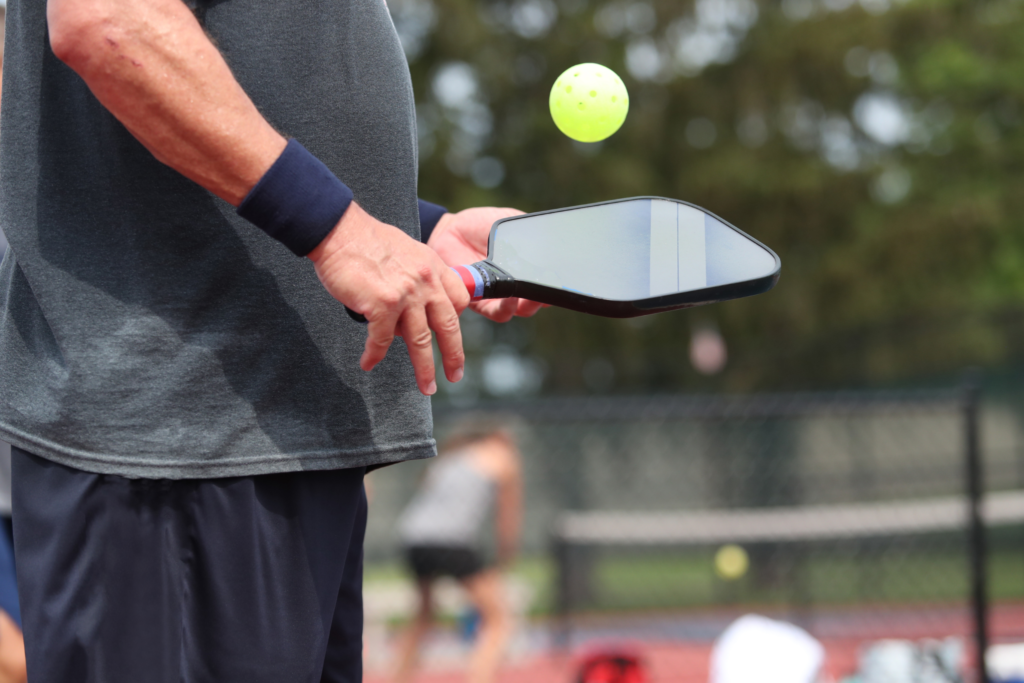
As the Olympic Games continue to captivate the world with their impressive displays of athleticism and sportsmanship, many sports enthusiasts and athletes wonder about the potential inclusion of emerging sports like pickleball in this prestigious event. Pickleball, a fast-growing paddle sport that combines elements of tennis, badminton, and table tennis, has gained popularity worldwide in recent years. In this topic discussion, we will explore the possibility of pickleball becoming an Olympic sport in the future.
Pickleball: A Brief Overview
Before we delve into the intriguing prospects of pickleball potentially becoming an Olympic sport, let’s explore this fascinating game in more depth. Pickleball, which had humble beginnings in 1965 when three friends – Joel Pritchard, Bill Bell, and Barney McCallum – improvised the game to entertain their families on a lazy summer day, has blossomed into a widely played and beloved sport.
The game is typically played on a rectangular court, usually measuring 20 feet by 44 feet for doubles and 20 feet by 22 feet for singles, with a net placed at the center. Players wield a solid paddle, generally made of materials such as wood, graphite, or composite, and a perforated plastic ball similar in size to a wiffle ball.
One of the most captivating aspects of pickleball is its dynamic nature. It is a sport that combines the finesse of badminton, the power of tennis, and the precision of table tennis. Players engage in fast-paced rallies that require not only quick reactions but also strategic thinking. The court’s compact size demands precise placement and agile movement, and the game often rewards those who can expertly blend offensive and defensive strategies.
Pickleball’s relatively simple rules and equipment make it accessible to a wide range of individuals, from children to seniors. Its adaptability allows players to adjust the pace to their comfort level, making it an excellent option for those looking to stay active and enjoy a social sporting experience. The sport’s popularity isn’t limited to any particular demographic, which contributes to its widespread appeal and potential for growth.
In the following sections, we will explore the factors that could contribute to pickleball’s inclusion in the Olympics, as well as the challenges it must overcome to secure a place on the world’s biggest sporting stage.

The Growth of Pickleball
Pickleball’s popularity has soared globally over the past decade, with millions of enthusiasts embracing the sport in the United States and beyond. Its widespread appeal is attributed to its simplicity and inclusivity, making it accessible to a diverse range of age groups, from children to senior citizens.
What’s remarkable is that pickleball’s allure isn’t confined to the United States; it has ignited passions in countries such as Canada, the United Kingdom, Australia, and many others. The sport’s inclusive nature and straightforward rules have fostered communities worldwide, demonstrating its adaptability and potential to become a global sensation.
Accessible facilities, affordable equipment, and an easy learning curve have made pickleball a sport for everyone. As we consider its prospects of Olympic inclusion, we must recognize its international growth and universal accessibility as vital factors in its journey toward the world’s grandest sporting stage.
Factors Favoring Pickleball's Inclusion in the Olympics
Several factors make pickleball a strong candidate for Olympic inclusion:
Global Popularity: Pickleball’s growth isn’t limited to a specific region; it has a global presence. This international appeal aligns with the Olympic Games’ mission to promote unity and diversity through sport.
Inclusivity: One of pickleball’s defining features is its accessibility to players of various skill levels and age groups. This inclusivity fits well with the Olympic values of openness and fairness.
Established International Organizations: Organizations like the International Federation of Pickleball (IFP) have been working to promote and standardize the sport worldwide. This helps establish the infrastructure needed for Olympic inclusion.
Competitive Depth: As pickleball continues to grow, the competition at the highest levels becomes increasingly intense. Talented athletes are emerging, which can add depth to the field and make the sport more competitive.
Television-Friendly: Pickleball’s fast-paced nature and engaging rallies make it television-friendly. This is important for the Olympics, which seeks to attract a global audience.
Challenges and Hurdles
While pickleball has a lot going for it, several challenges must be overcome for it to become an Olympic sport:
International Unity: Achieving consensus among the international pickleball community can be challenging. There are different rule sets and court sizes in use around the world, which would need to be standardized.
Competition from Other Sports: The International Olympic Committee (IOC) must weigh the inclusion of pickleball against other sports vying for a spot in the Olympics. Established sports with a strong tradition often have an advantage.
Facilities and Infrastructure: Hosting pickleball competitions would require specialized courts and equipment. Ensuring that these facilities are readily available in Olympic host cities could be a logistical challenge.
Sponsorship and Funding: Becoming an Olympic sport requires significant financial backing. Securing sponsorship deals and funding to support the sport’s development and Olympic campaign would be crucial.
To Sum it All up...
The question of whether pickleball will become an Olympic sport in the future remains uncertain, but the sport’s growth, global popularity, and inclusive nature make it a strong contender. The road to Olympic inclusion may be paved with challenges, including standardization, competition from other sports, and logistical concerns. However, with the dedicated efforts of the international pickleball community and the backing of governing bodies, we may one day see pickleball on the world’s biggest sporting stage. Until then, pickleball enthusiasts can continue enjoying the sport’s rapid growth and exciting gameplay at all levels of competition.